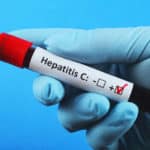Are There Shades of Grey in Hepatitis C Treatment Success?
It is easy to think of treating an illness in black or white terms – defined as cured or not cured. However, there may be shades of grey in-between these extremes. A large study conducted at the University of Washington in Seattle has found that interpreting a Hepatitis C treatment outcome may not be cut and dry.
Successful Hepatitis C Treatment Definition
Affecting an estimated 4 to 5 million Americans, Hepatitis C is a major public health problem. Because those with this virus are typically asymptomatic for several years, it is often not detected until the illness is in the late stages. Hepatitis C that has progressed to advanced liver disease can have serious consequences such as cirrhosis, liver cancer and liver failure.
Since Hepatitis C was categorized in the early 90s, getting rid of this tenacious liver viral infection has proved to be a monumental challenge. The current triple-drug treatment regimen boasts a 75 percent success rate, which means that three-quarters of patients who take the drugs will have an undetectable viral load six months after treatment completion. Clinicians dub this desired outcome as sustained viral response, abbreviated as SVR. For those who are not able to “eliminate” the virus from their body, managing Hepatitis C is crucial to prevent a worsening of their liver’s condition.
People who do not achieve SVR are commonly referred to as treatment non-responders. Although eliminating the virus in everyone is ideal, this perspective is very black and white; individuals who have achieved SVR are successful and non-responders have failed.
Shades of Grey
Practitioners and patients rarely give Hepatitis C treatment outcomes between successes and failures much consideration. However, research led by Chihiro Morishima, MD at the University of Washington in Seattle broadens the spectrum of successful Hepatitis C treatment. This study demonstrates that profound suppression of the Hepatitis C virus reduces events that cause advanced liver disease – even in those who do not achieve SVR.
In this study, treatment non-responders had improvement in their liver health that correlated with the degree of Hepatitis C viral suppression achieved. More specifically, measurements for liver inflammation and liver scarring (as determined by liver enzyme levels and biopsy), improved in those who had viral suppression early in the treatment process – even if some viral particles resurfaced six months after treatment completion. The researchers found this to be true at one and a half and three and a half years following the end of Hepatitis C treatment. Compared to patients who did not have viral suppression early on, individuals with early viral suppression were significantly less likely to experience advanced liver disease – including liver cancer and death – over a six-year period.
This University of Washington finding gives hope to previous non-responders who achieved viral suppression early in their Hepatitis C drug treatment regimen. Thus, we can assume that if the medications suppressed the Hepatitis C virus at some point in treatment, all was not for naught. Achieving SVR is still the benchmark for successful Hepatitis C treatment. However, previous non-responders should know that there appears to be gradations of what renders Hepatitis C treatment beneficial.
References:
http://www.bettertoknowc.com/pages/understanding-treatment-options, Understanding Treatment Options, Retrieved July 22, 2012, Vertex Pharmaceuticals, Inc., 2012.
http://www.ncbi.nlm.nih.gov/pubmed/22688849, Reduction in Hepatic Inflammation Is Associated With Less Fibrosis Progression and Fewer Clinical Outcomes in Advanced Hepatitis C, Morishima C, Retrieved July 22, 2012, American Journal of Gastroenterology, advanced online publication June 2012.
http://www.news-medical.net/news/20120619/HCV-suppression-reduces-liver-damage.aspx, HCV Suppression Reduces Liver Damage, Lynda Williams, Retrieved July 22, 2012, News-Medical.net, 2012.








16 Comments
I am one of those non-responders that “achieved viral suppression early in my Hep C drug treatment,” yet reslapsed at one year. Yes, one year. Negative at 6 months, negative at 9 months, positive post one year. No risk factors involved in this situation to have been reinfected. The good news, as stated in this article, is that my once elevated liver enzymes and other Hep C test have been negative or normal since completing treatment at least 9 years ago. I still look for new treatment options and will consider undergoing treatment again when the right once becomes available.
What treatment did you have? And what genotype?
I didn’t respond until after week 12 but was definitly SVR at week 16. I don’t suppose that is early response. I don’t no what to do to protect my liver other then drink water wwhich I hate but it beats alternative. I am now stage 1, cirrhosis 2 years after relapse, at least I think I am still stage one. The odds of being cured by the newest treatment, that being the convential with the added telepivair, are extremely low for me because I have a L28 gene, so I am told. I suspect this disease will kill me before treatment becomes available.
God bless you! Keep holding on!
This article sounds promising, but I would like to read the original study. I can’t find it on the internet. Does anyone have a link?
my treatment took place 2007-08. Within 3 months my virus was clear, but i had to take the treatment for another 6 months… I can truly say i feel ok today. But still on anti-depresents, is this the case in all ex HCV peps…im managing a fulltime job and I never stopped.
That is wonderful! Good bless you!
I wonder who/how comes up with this information …I was in a very early (1990’s) drug trial for HepC … have genotype 1a, and was given Ribavirin and Interferon (injecting myself everyday) … after 6 months the side effects were fierce and I did not clear the virus, but reduced the virus, so it was deemed a success … success for who? … after the treatment, I had what was termed a “bounce” where the virus quadrupled itself in my body … it took my years of alternative treatments to get the viral levels back down, and liver enzymes back down to where they were before the treatments … I am very leery of drug trials and there results … as a “Survivor” …
the quality of my life is what is important, not necessary “clearing” the virus, especially at what cost? … after the drug treatments, I developed fibro … was it do to the treatments? or maybe just the 40 years of living with the virus, who knows … but for anyone reading this, get as much info as possible when making health related decisions,and then “trust” your “instincts” / “intuition” when it comes to your health
God bless you! You mentioned fibro….when did you first develop fibrosis and how are you doing now?
Well grey is an understatement. Most trials look for the ideal patient’s terrain to make there study look more successful. Studies are funded by drug companies for profit. Side affects and collateral damage are seldom mentioned. These are but not limited to damage to the liver (the very liver we’re trying to protect) thyroid and heart. Never here much about that do we? I’m not saying my way is the only way because I’ve had to spend a lot on iv work like glutathionne tumeric and oral supplements. Also a diet without alcohol, soda and fatty foods. I have my enzyme levels (alt ast ) less than 2x normal where at one point they were 10x normal. I have had Hepc for 36 years. Luckily quit alcohol 26 yrs ago and only found out I had Hepc 12 years ago. Hang in there everyone but be skeptical ask lots of questions and keep them honest. Peace out 🙂
Hello Fred…God bless you! Have you had any fibrosis?? I hope thats not a dumb question?
You mention “spend a lot on IV work like glutathionne tumeric and oral supplements.” What supplements besides tumeric do you use? Thanks and good luck.
Not so grey for me, my HCV Geno 2b was suppressed for about 9 years. In 2000, routine blood lab CBC_ High Liver enzyme ALT
indicates inflammation.
2002_ started 24 week, combo therapy, at finish “no viral level detected… 6 month follow up. “viral level detected, with ALT in normal range, and continued normal on yearly blood labs until Nov. 2011. Heptimax viral level at 22, million…
Feb. 2012_ started new treatment Pegasys/Ribavirin.. 4 weeks later Heptimax viral level “Not detected”. I am now in week 31, with A better response then in 2002.
Different Geno types, different people, different times, different responds possible with treatment medications….
My best treatment advise, drink an uncomfortable amount of water. learn to read your own blood labs, read Pegasys/Ribavirin info on medications, good diet. And remember drinking alcohol is like throwing battery acid on your liver, “Don’t be a fool, not even one beer on birthday…. Headed for SVR.
I apologize for my misinformation in my “Not so grey for me writting….. You would of course find your liver enzyme Blood Lab information in your CMP for your ALT or AST; Not your CBC as I wrote….. CMP (Comprehensive Metabolic Panel)….. “CBC (Complete Blood Count)
mo I also had 2b. Do you think you were reinfected.
I am in week 41 of a 48 week treatment for genotype 1a
I have been hcv undetectable for my last two labs-I chose to not take anti-depressants to get me thru the early months prior to them lowering my doses. Now I am glad I made that choice. My shot is on monday and I am usually down tuesday and wednesday then better the rest of week.
It has not been easy but I want to live to be 80 or more. I hope others take this treatment to save there lives.
ps. I am 62 now